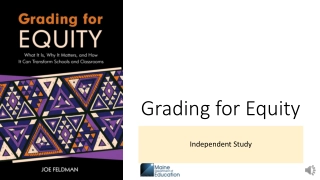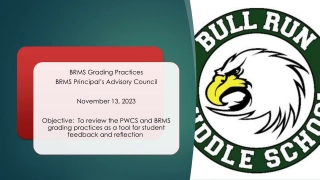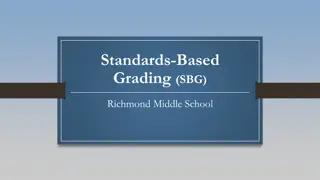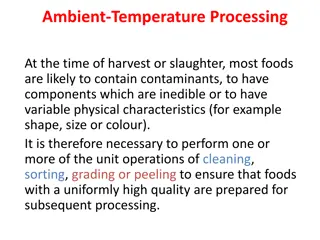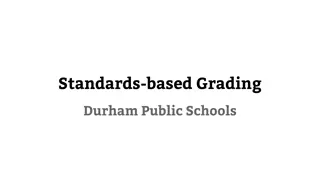
Grading
The ECF grading system for chess players involves collecting specific data for grading purposes, including player information and game results. Non-gradable events are also outlined, and the method for calculating grades using a linear system is explained. The player's grade is determined by averaging all games played, with a recommendation for converting ECF grades to FIDE ratings.
Uploaded on | 0 Views
Download Presentation

Please find below an Image/Link to download the presentation.
The content on the website is provided AS IS for your information and personal use only. It may not be sold, licensed, or shared on other websites without obtaining consent from the author. If you encounter any issues during the download, it is possible that the publisher has removed the file from their server.
You are allowed to download the files provided on this website for personal or commercial use, subject to the condition that they are used lawfully. All files are the property of their respective owners.
The content on the website is provided AS IS for your information and personal use only. It may not be sold, licensed, or shared on other websites without obtaining consent from the author.
E N D
Presentation Transcript
Grading ECF Arbiter Seminar - Materials by CAA
Grading info It is a condition of submitting results to the ECF for grading that the following data is collected, which will appear on the ECF grading website: The player s forename and surname The club that the player is playing for, in the case of a team competition The player s results of games against other players, including their date The following non-compulsory data, used by the ECF to help identify players, but is not publicly accessible: The player s date of birth (note: the player s age on 1stSeptember and 1stJanuary will be publicly accessible on the ECF website) The player s gender
Non-gradable events The following types of game are ineligible for grading: Thematic Lightning Correspondence Games played without chess clocks Chess960 games
Inexperienced players often ask arbiters how grades are calculated The ECF uses a linear system The grade achieved in a game is the opponent s grade + 50 for a win, the opponent s grade 50 for a loss and the opponent s grade for a draw. The maximum difference in grade is limited to 40 points. For a 150 rated player the table gives examples Opp Grade 90 (taken as 110) Win 160 Draw 110 Loss 60 130 150 180 200 130 150 80 100 180 200 (taken as 190) 230 240 180 190 130 140 Calculating Grades
Calculating Grades The players grade will be the average of all games played. FIDE ratings are more complicated and are not covered in this course. The ECF recommends that FIDE rating = 7.5 x ECF + 700 ECF Grade = (FIDE 700)/7.5

